MULTI-ACT Event Report: “Does your research impact society responsibly?”
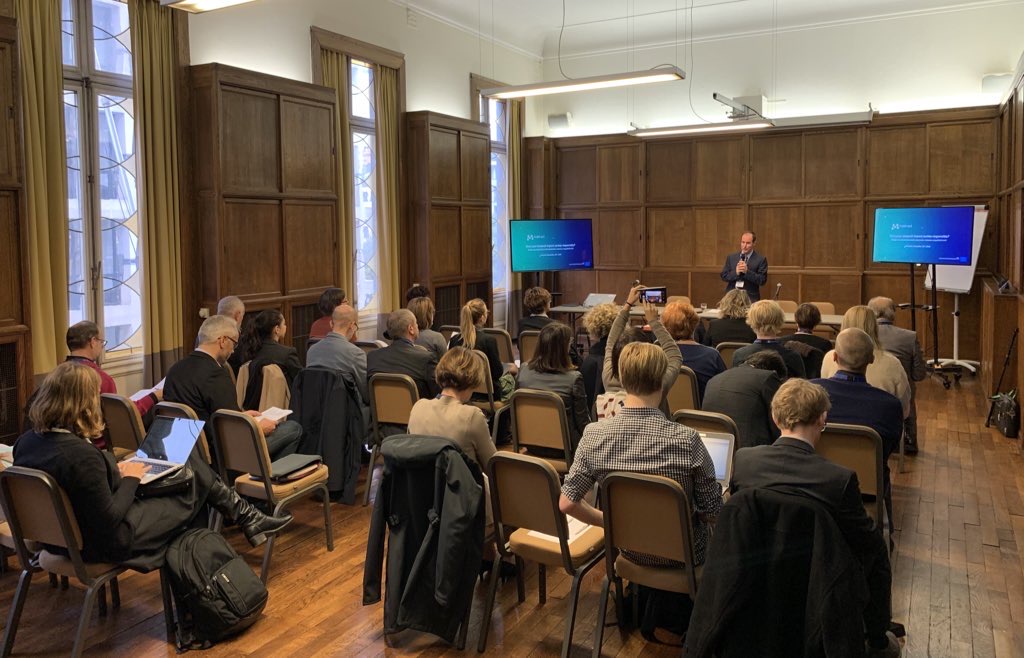
On 12 November 2019, the MULTI-ACT consortium held its first project event, centred around introducing the project in greater depth and sharing the preliminary results of a number of work packages.
The event was moderated by Pieter van Galen, EMSP and the presentations kicked off by Project Coordinator, Paola Zaratin.
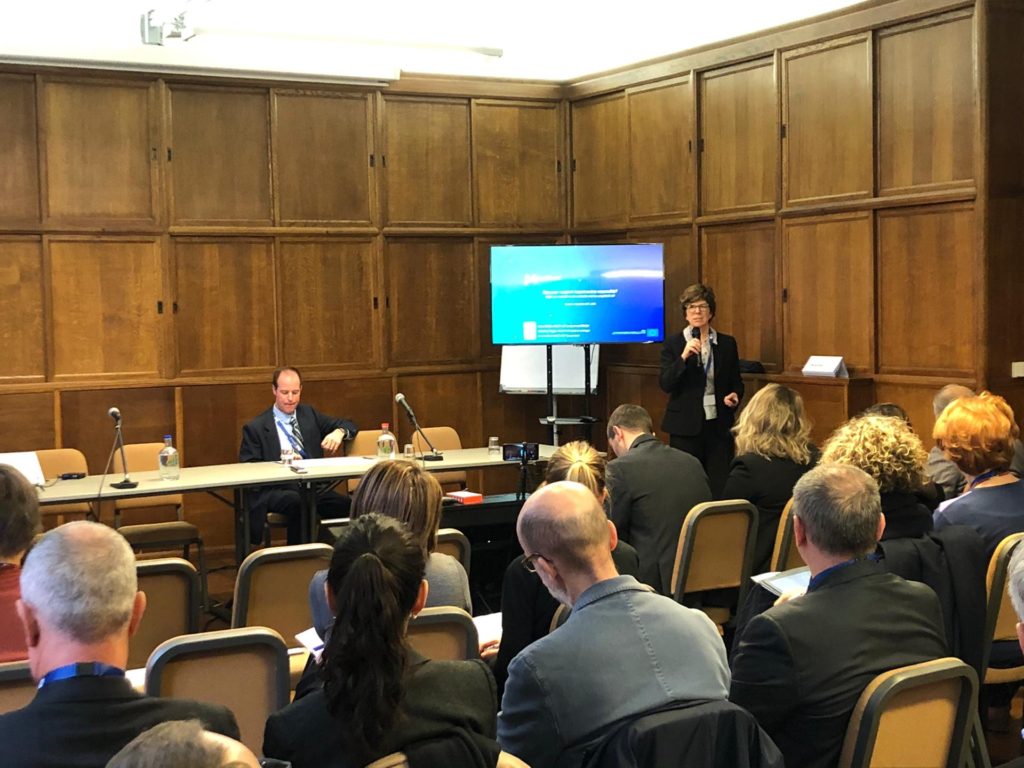
Paola Zaratin, MULTI-ACT Project Coordinator,gives a presentation on the project’s aims and objectives
Costanza Monari, from MULTI-ACT partners EY, presented the new governance criterion developed to allow for effective cooperation of all relevant stakeholders in multi-stakeholder research initiatives and transformative governance. Through a co-design process, the MULTI-ACT Governance Model was developed for the implementation of multi-stakeholder engagement and collaborative initiatives in brain disease research. The Model is structured according to 5 main criteria and 19 sub-criteria, which focus on the definition of a shared agenda, the structuring of a participative governance model, the development of a methodology to engage stakeholders, the efficient management of the initiative and the assessment of its results. The Model contains detailed recommendations to guide the user in the application of criteria and sub-criteria; furthermore, when possible, it also offers practical solutions for implementation, considering best practices emerging from a long list of multi-stakeholder initiatives, applicable to the purposes of MULTI-ACT.
Ericka Costa, University of Trento, presented on a Master Scorecard of indicators developed to apply a multi-stakeholder perspective to assess the impact of health research in the field of brain diseases, using MS research as a case study. This is a new tool for the assessment of the research impact across different dimensions including excellence, efficacy, social, economic and patient reported dimension and to better tie the research results to the objectives of the initiative. The Master scorecard consists of five dimensions of accountability. In line with RRI guidelines, the mission dimension focuses principally on better aligning research and innovation (R&I) and its outcomes with the values, needs and expectations of patients and society.
Deborah Bertorello & Giampaolo Brichetto, Italian MS Society, gave a presentation on the MULTI-ACT patient engagement guidelines and the patient reported dimension of research. A dedicated group of experts was established in the patient engagement group to guide the work and to identify R&I processes where patient engagement is instrumental to reach impact. A landscape analysis of existing patient engagement experiences in R&I, focused on Multiple Sclerosis (MS) and brain disorders, has been performed to identify areas of unmet needs and come up with a prioritization of intervention. Current “best experiences” of patient involvement in clinical and healthcare research was also used as a basis for developing innovative solutions to engage patients in the governance of wider R&I programs (i.e. MULTI-ACT Patient Engagement guidelines). Empowering the experiential knowledge of patients, as co-researcher and key stakeholders, is the root of the MULTI-ACT patient engagement strategy and related guidelines.
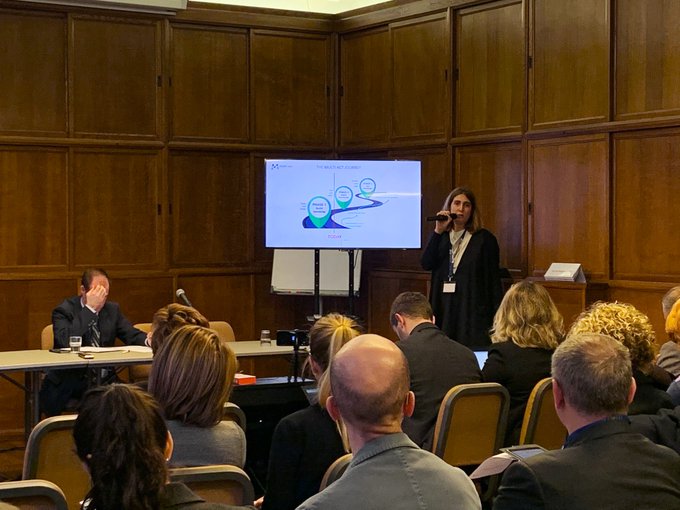
Costanza Monari, EY Italy, presents the MULTI-ACT governance model 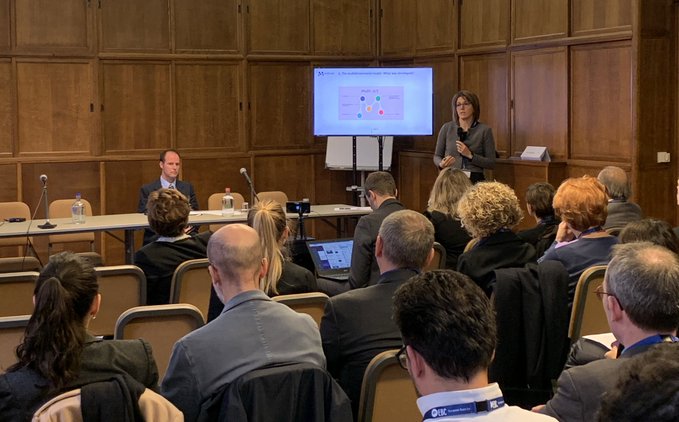
Ericka Costa, University of Trento, presents on the MULTI-ACT Master Scorecard 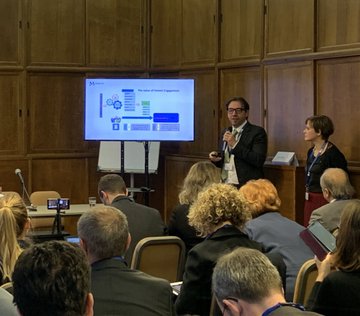
Giampaolo Brichetto, Italian MS Society, presents on the patient reported dimension 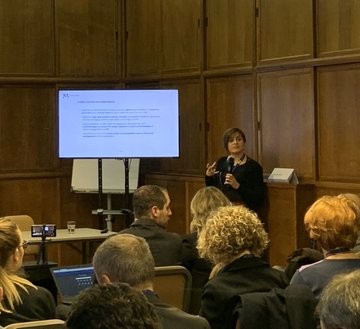
Deborah Bertorello, Italian MS Society, presents on the MULTI-ACT Patients Engagement Guidelines 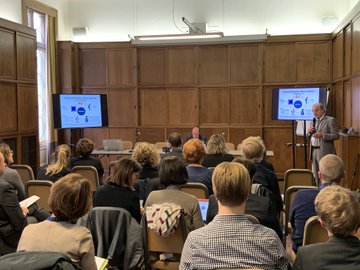
Prof. Giancarlo Comi presents on the European Charcot Foundation and the MS care unit case study
The consortium presentations were followed by a presentation by Prof. Giancarlo Comi, who introduced the European Charcot Foundation’s Multi-Stakeholder Initiatives project, which aims to promote a joint approach to coordinate existing Multiple Sclerosis initiatives aiming to avoid overlap in the actions and to increase the power of representation of the MS world at institutional level in Europe with the ultimate goal of improving MS patients’ lives. Prof. Comi, in particular, highlighted the MS Care Unit project, a joint approach to coordinate existing initiatives in MS aiming to avoid overlap and align organisational structures to support MS Care Units throughout Europe.
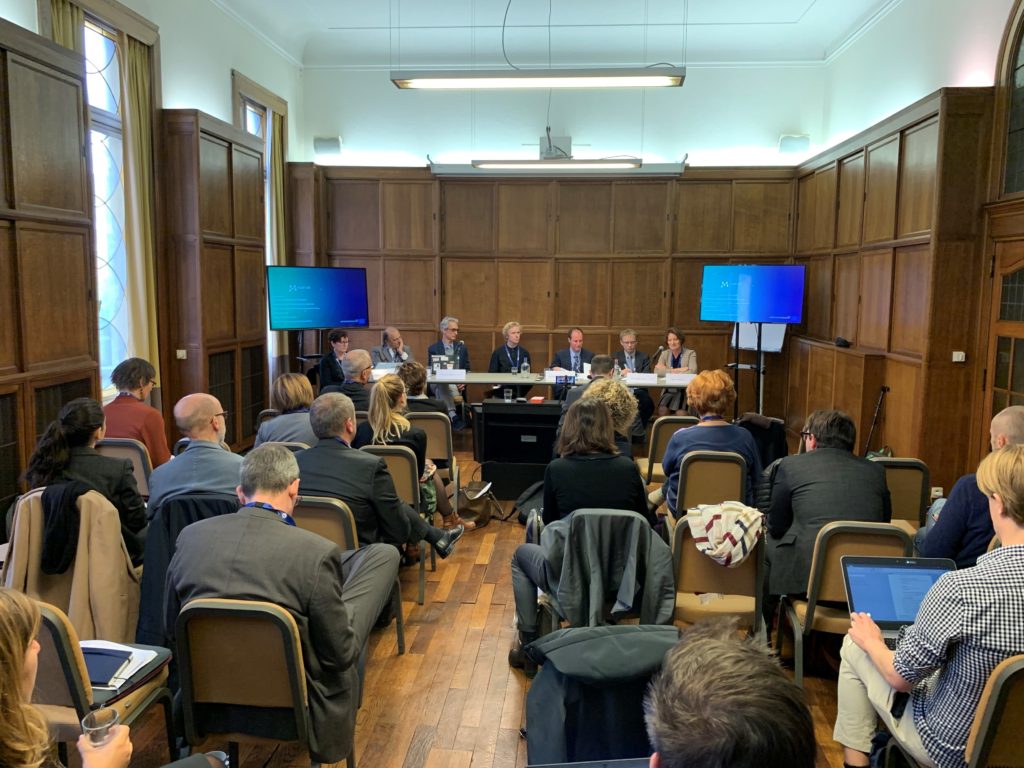
Panel Discussion: (L-R) Nancy van Hoylandt (EFNA), Prof. Giancarlo Comi (ECF), Stephane Berghmans (Elsevier), Michael Thor (MSIF), Pieter van Galen (Moderator – EMSP), Linden Farrer (DG Research and Innovation – European Commission), Jan Nissen (MSD) 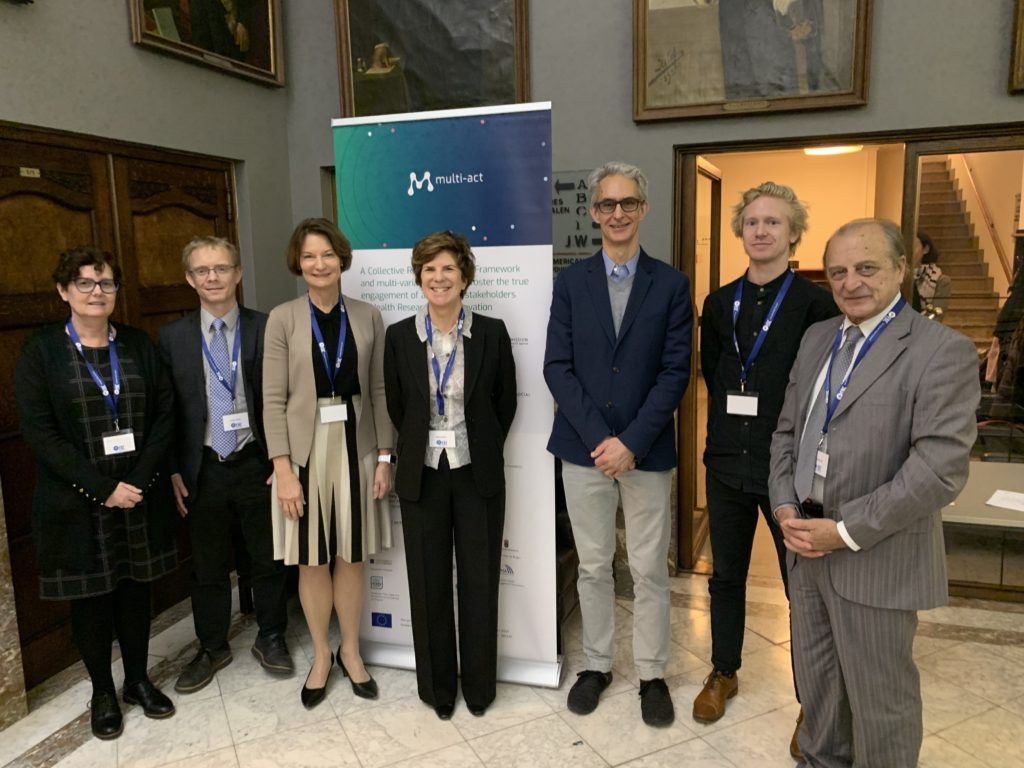
Panel Group Photo (L-R): Nancy van Hoylandt (EFNA), Linden Farrer (DG Research & Innovation – European Commission), Jan Nissen (MSD), Paola Zaratin (MULTI-ACT Project Coordinator), Stephane Berghmans (Elsevier), Michael Thor (MSIF), Prof. Giancarlo Comi (ECF)
The last hour of the event was dedicated to a panel discussion, which brought together a number of experts: Nancy van Hoylandt (EFNA), Linden Farrer (DG Research & Innovation – European Commission), Janice Nissen (MSD), Stephane Berghmans (Elsevier), Michael Thor (MSIF) and Prof. Giancarlo Comi (ECF). The panelists discussed what was presented by the consortium and the work that MULTI-ACT is undertaking, sharing positive remarks on the work done so far and the overall aim of the project. The discussion also explored key elements of the MULTI-ACT project: multi-stakeholder research initiatives, measuring research impact and patient engagement.
The event ended with the premiere of the MULTI-ACT project video, which can be watched here.
Full presentations can be found below:
MULTI-ACT Introduction (Aims & Objectives) – Paola Zaratin
MULTI-ACT Patient Reported Outcome Measures – Deborah Bertorello & Giampaolo Brichetto


